Ways to Get Active at Any Age
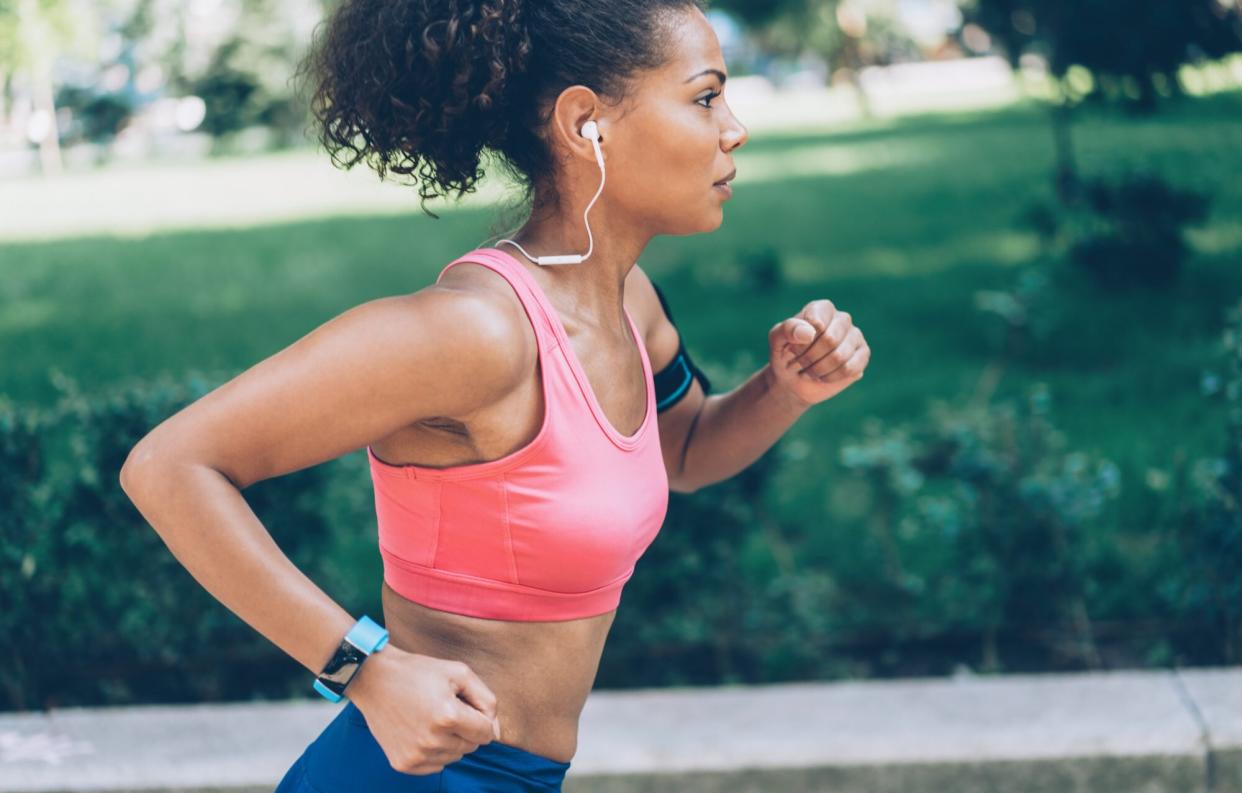
- Oops!Something went wrong.Please try again later.
- Oops!Something went wrong.Please try again later.
Getty Images
Many pro athletes start their sport around the same time they take their first steps. Take, for instance, superstars like Alpine ski racer Lindsey Vonn and Russian tennis pro Maria Sharapova. Vonn put on her first pair of skis at the ripe age of two and went on to win four World Cup championships and an Olympic gold medal. Sharapova picked up a racquet when she was just four years old, went pro at 14, and holds 32 singles and five Grand Slam titles.
These preschooler-to-pro success stories inspire us all, but early entry into sport isn't always the case. Numerous pro athletes out there fell into their activity later in life. So we tapped some late-blooming pros and top experts for six tips on how you too can excel at any sport.
Challenge Yourself
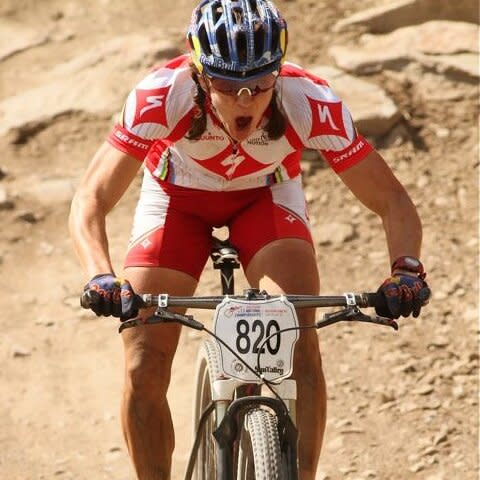
As an adult, Rebecca Rusch wasn't very fond of bikes-she hadn't ridden one since her purple Huffy with a banana seat. In fact, the adventure racer and endurance athlete admits she was terrified of mountain biking. But after dabbling in the sport in adventure races, she decided to start racing mountain bikes at the age of 38. Now, at 46, she's a multi-time world champion in the sport that was once her biggest weakness.
"I'm living proof that it's never too late to learn a new sport and get really good at it," says Rusch. "Everyone should expand their sporting horizons." Want to expand yours? Rush recommends getting educated and using your experience to help you take on the challenge. "We are smart and savvy and have learned some life lessons," she says. "Let that guide you in attacking a new sport. Solicit expert advice via a coach, a local club, or a friend who's already involved in the sport. Just a few sessions with an expert will save hours of fumbling and learning the lessons yourself the hard way."
Exercise Patience
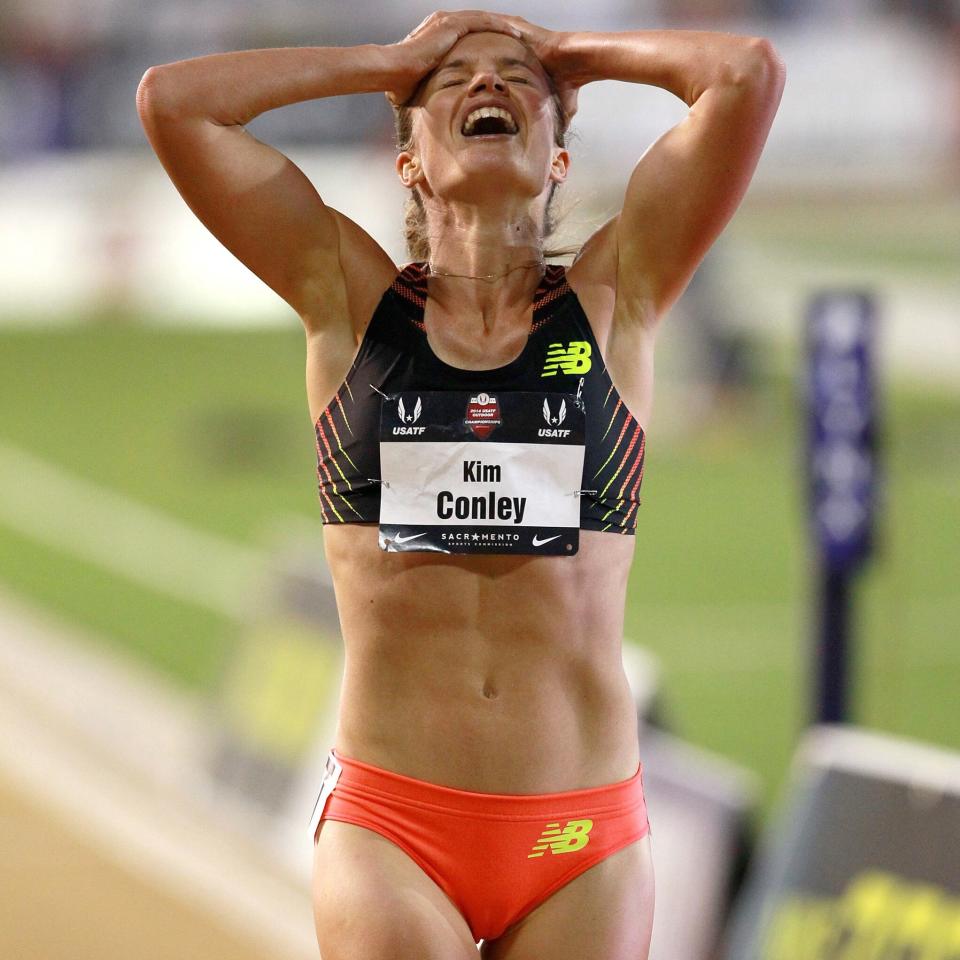
Kim Conley, 28, grew up playing a variety of sports including soccer, basketball, softball, and running. And though she focused on running in high school and college, she knew she had unfinished business with the sport after graduating. Over the next few years, she continued to push herself and, in the 2012 Olympic Trials, she surged from fifth to third place in the final hundred meters to earn the final spot on the Olympic Team. Years of hard work and focus on bettering herself culminated in that fraction of a second where she realized her dream.
"I approach running with a long term vision that includes room to continue growing," says Conley, a Team New Balance athlete. To accomplish your long-term goals, set smaller, intermediate ones and practice patience. "Success is not achieved overnight but takes hard work and time," says Conley. One of her favorite quotes is: "It takes years of hard work to become an overnight success." Conley adds, "I read this to myself a lot in the years leading up to the Olympic Trials, believing all along that one day I would emerge definitively on the landscape of American distance running." And she did.
Make Friends and Have Fun
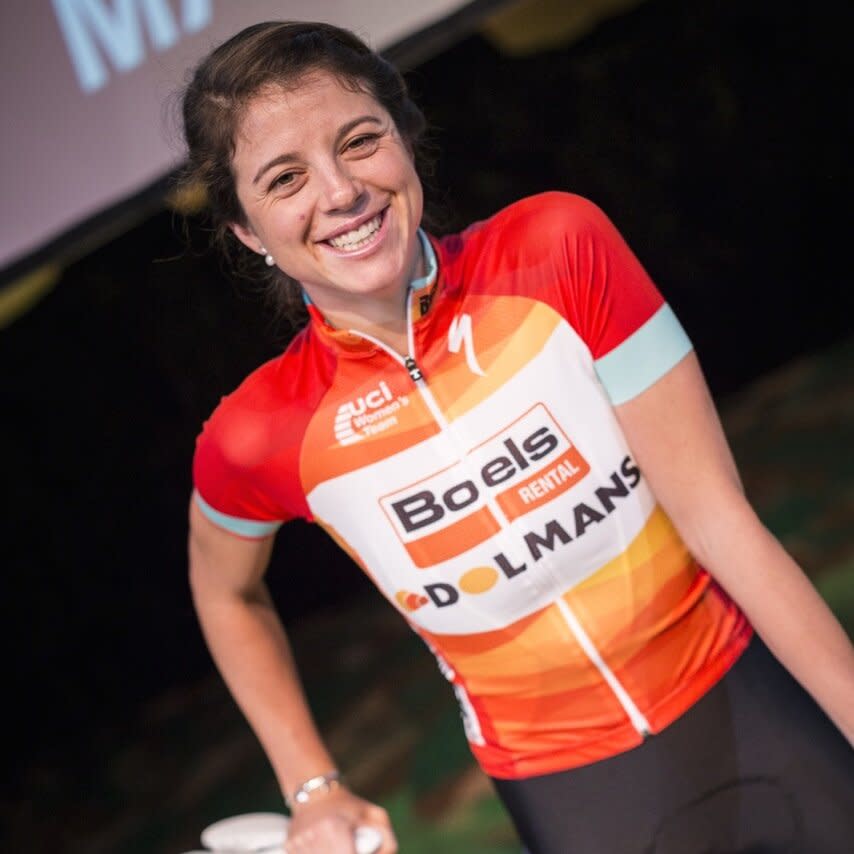
Just four short years ago, Evelyn Stevens, 31, was working on the analyst floor at a New York City investment firm. If you asked her then, she could have never pictured her life going from Wall Street to the World Road Cycling Championships. But after borrowing a bike while visiting her sister in San Francisco, she was instantly hooked and upon returning to New York, Stevens bought her first road bike and signed up for her first race in Central Park. Now, she's gearing up for the 2015 season.
Tear a page from Stevens' book and toss hesitation to the curb. "I can completely understand why people might be intimidated, because it wasn't that long ago when I felt the same way," says Stevens. "But I quickly learned that there is no need to be." Starting something new can feel overwhelming, but a group of friends can make it a lot more fun. She suggests finding a buddy who does what you're interested in. If you don't know anyone, you can join a club or ask your local shop. Then, it's all about enjoying it. "Cycling is such a freeing sport that gets you in great shape pretty quickly. Get your friends out on the road, go for a few hours, factor in a coffee stop, and enjoy a good workout while being outside," suggests Stevens.
Motivate Yourself Mentally
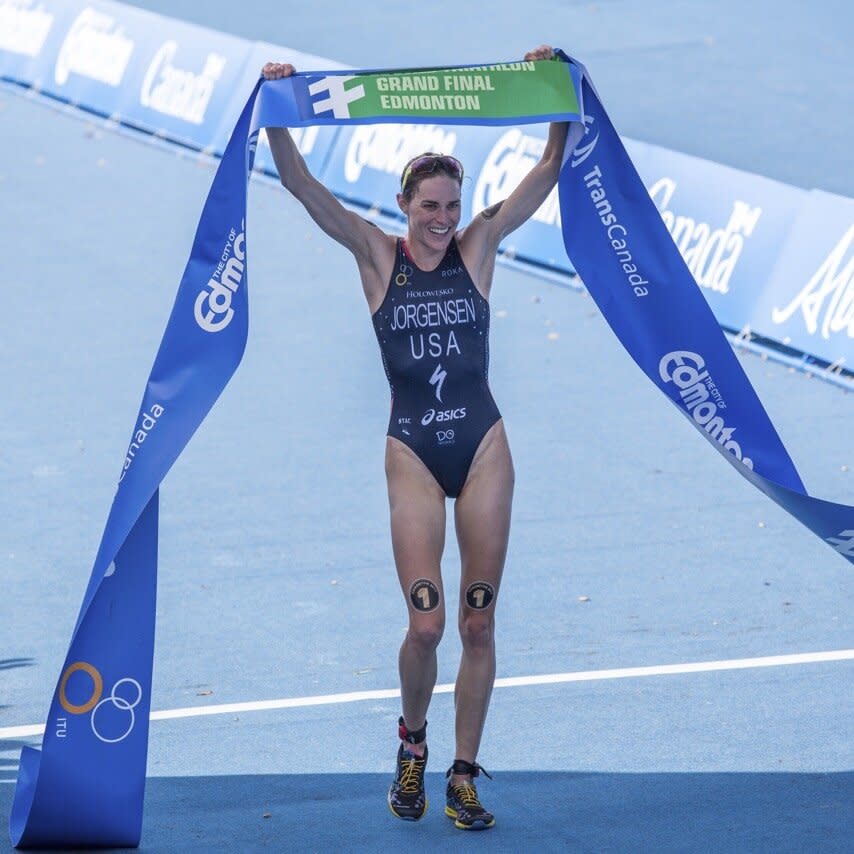
Though professional triathlete Gwen Jorgensen, 28, grew up swimming, she didn't start running competitively until her junior year of college. After graduation, just as she started a new job as a tax accountant for Ernst & Young, she was recruited into the sport of triathlon. And here's the kicker: she had never even ridden a bike before. The swimming runner hopped on a set of wheels and in just one year, qualified for the 2012 Olympics in triathlon.
"It's been a pretty fast track," says Jorgensen. "It's definitely different when you come to a sport later in life but it helps you appreciate it more," she says. Steal a slice of Jorgensen's success by making a list of why you deserve to achieve your goals for a mental edge. "Before a race, I look back at what I've done, think about my motivation, and write down why I should succeed," explains Jorgensen. "It puts me in the right mind set and gets me focused to do my best."
Warm Up and Recover Right

Certified personal trainer at Asphalt Green in New York City, Dejuana Richardson works with athletes of all ages from eight to 82. In his experience, one of the biggest physical hurtles he sees adults facing is the slower recovery time. "You just don't have that young body that bounces back right away the next day," he says.
That's why a proper warm-up and recovery are of the utmost importance. Richardson recommends a 10-minute warm-up. If you're someone who is very tight, then do some light dynamic stretching before your activity or sport. Afterwards, cool down by doing some static stretching while the muscles are warm and using a foam roller to loosen up any trigger points. And don't forget to mix things up on your training days. "Most exercises we do are linear. In most sports, you're typically reacting a lot to a ball or person. Training yourself to be more responsive and varying things with dynamic moves in various directions is huge," he says.
Train Your Mind, Not Just Your Body
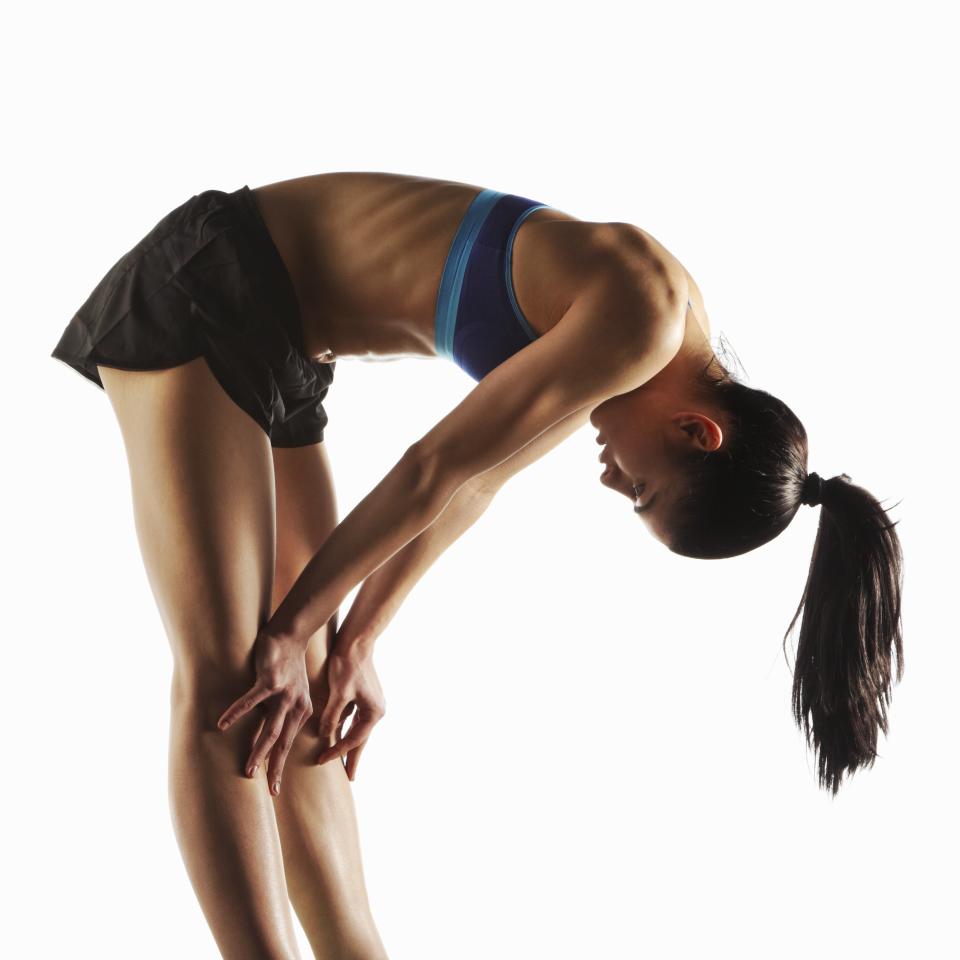
Sport psychologist David E. Conroy, Ph.D., an assistant professor of kinesiology at Pennsylvania State University, reminds athletes that just as your body adapts to training (think: increasing fitness or strength), so too does your mind. One of the biggest mental challenges you'll encounter is persisting through failures. "You will fail frequently when you learn a new sport or activity-if you don't, you're not challenging yourself enough," says Conroy. "The trick is to make each failure a learning experience so you fail better each time."
Conroy suggests reminding yourself that although the mental and emotional changes you experience may be less noticeable than some of the physical changes, they are happening and your focus has to remain on giving yourself the opportunity to improve through repeated practice. "Focus on learning and improving as your goal instead of comparing your ability level to others. Immerse yourself in learning," adds Conroy.

